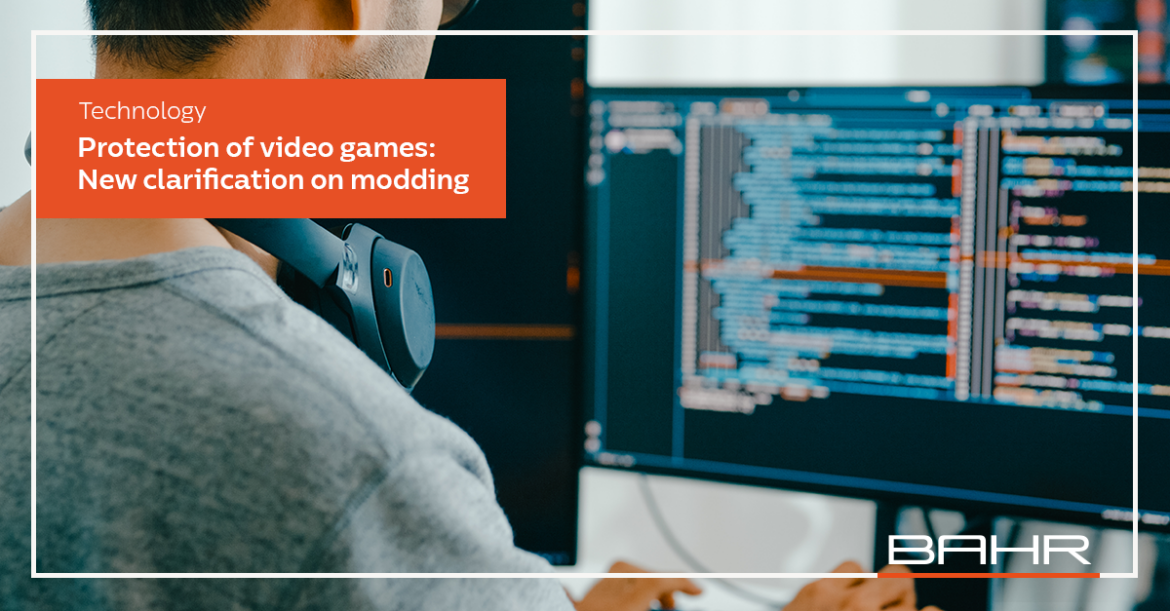Technology | Protection of video games: New clarification on modding
A recent decision by the European Union Court of Justice (“CJEU”) offers significant clarification on the scope of the exclusive rights held by video game developers. The CJEU examined a case involving software created by a modder that allowed players of Sony’s PlayStation Portable (PSP) games to bypass the games’ internal gameplay restrictions, and concluded that such use did not infringe upon the copyrights of Sony because the content did not enable the protected computer program to be reproduced or subsequently created.

Computer programs, or software, are regarded as literary works that enjoy copyright protection under the Norwegian Copyright Act. The original creator is granted exclusive rights to reproduce, distribute, publicly perform, publicly display, and create derivative works from the computer program. The Copyright Act implements Directive 2009/24/EC, commonly referred to as the Computer Programs Directive or Software Directive. According to Article 1 (2), protection extends to all forms of expression of a computer program, covering both object code and source code. However, the principles and ideas underlying the program, including its interfaces, functionality and logic, are not protected. These exemptions are justified by the principle that copyright protects expressions, not ideas as such.
In case C-159/23 (Sony v. Datel), the CJEU examined the scope of protection under the Computer Programs Directive in the context of video game modding. The case specifically addressed whether there is an infringement of the developer’s exclusive rights when it is not the object code or source code of a computer program, or their reproduction, that is changed. Rather, another program running concurrently with the protected program changes the content of variables that the protected program uses during its execution and has transferred to the RAM of the computer.
Datel developed software that complemented Sony’s PSP and the games intended for that console. Using Datels software enabled the PSP console to be controlled by motion and the player to enjoy game options not provided at that stage of the game by Sony, such as options to remove in-game restrictions in the racing video game MotorStorm: Arctic Edge.
The CJEU concluded that Datel’s modding did not infringe on Sony’s copyright protection. The decisive factor was that Datel’s software did not modify the game’s source code or object code: it only temporarily altered variables stored in the video game’s RAM. These variables are considered part of the program’s functionality, which users interact with to access its features, and are not protected against alterations by modders.
BAHR’s view
The decision aligns with the provisions of the Copyright Act regarding what constitutes a copyrighted work, and the exclusive rights granted by copyright protection, which is limited to specific expressions. The graphic user interface of a computer program merely helps users access the program’s features, but it is not considered a form of expression of the program itself and is not protected against alterations by modders. Similarly, the functionality of a computer program, its programming language, and the format of data files used to exploit certain of its functions are also not considered as forms of expression. This decision offers third parties a degree of predictability when modding games based on community feedback.
However, several legal considerations must nevertheless be taken into account by modders. Copyright holders may implement protection systems to control the reproduction or distribution of their works, and removing or circumventing these systems is prohibited by law. Additionally, licensing agreements and distribution rights may restrict the sharing of altered versions of games. End-user license agreement (EULA) must also be observed, as some game developers require players to accept terms that prohibit reverse engineering or bypassing anti-cheat measures, potentially leading to breach of contract issues and liability. Modders should also be cautious of trademark infringement when using trademarks or creating mods based on other brands.
